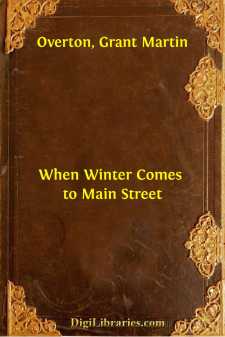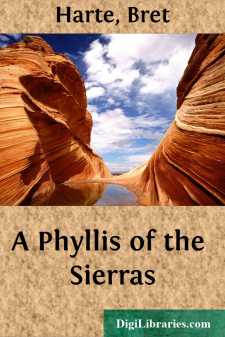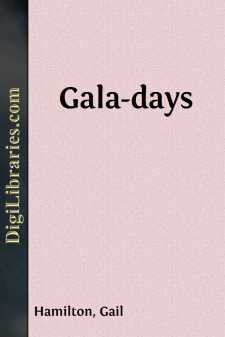Literary Collections
- American 84
- Ancient, Classical & Medieval 14
- Asian 1
- Australian & Oceanian 1
- Canadian 55
- Continental European 121
- English, Irish, Scottish, Welsh 179
- Essays 160
- General 24
- Letters 46
- Middle Eastern 1
Literary Collections Books
Sort by:
by:
Honore de Balzac
Z. MARCAS I never saw anybody, not even among the most remarkable men of the day, whose appearance was so striking as this man's; the study of his countenance at first gave me a feeling of great melancholy, and at last produced an almost painful impression. There was a certain harmony between the man and his name. The Z. preceding Marcas, which was seen on the addresses of his letters, and which...
more...
SECTION I Om! Having bowed down to Narayana and Nara, the most exalted male being, and also to the goddess Saraswati, must the word Jaya be uttered. Ugrasrava, the son of Lomaharshana, surnamed Sauti, well-versed in the Puranas, bending with humility, one day approached the great sages of rigid vows, sitting at their ease, who had attended the twelve years' sacrifice of Saunaka, surnamed Kulapati,...
more...
Chapter I THE COURAGE OF HUGH WALPOLE i Says his American contemporary, Joseph Hergesheimer, in an appreciation of Hugh Walpole: “Mr. Walpole’s courage in the face of the widest scepticism is nowhere more daring than in The Golden Scarecrow.” Mr. Walpole’s courage, I shall always hold, is nowhere more apparent than in the choice of his birthplace. He was born in the Antipodes. Yes! In that...
more...
by:
George Gissing
CHAPTER 1 Harvey Rolfe was old enough to dine with deliberation, young and healthy enough to sauce with appetite the dishes he thoughtfully selected. You perceived in him the imperfect epicure. His club had no culinary fame; the dinner was merely tolerable; but Rolfe's unfinished palate flattered the second-rate cook. He knew nothing of vintages; it sufficed him to distinguish between Bordeaux and...
more...
by:
Various
CHAPTER I. THE HOUSE OF DESVARENNES The firm of Desvarennes has been in an ancient mansion in the Rue Saint Dominique since 1875; it is one of the best known and most important in French industry. The counting-houses are in the wings of the building looking upon the courtyard, which were occupied by the servants when the family whose coat-of-arms has been effaced from above the gate-way were still...
more...
by:
Bret Harte
CHAPTER I. Where the great highway of the Sierras nears the summit, and the pines begin to show sterile reaches of rock and waste in their drawn-up files, there are signs of occasional departures from the main road, as if the weary traveller had at times succumbed to the long ascent, and turned aside for rest and breath again. The tired eyes of many a dusty passenger on the old overland coach have...
more...
The cemetery of Père Lachaise is the Westminster Abbey of Paris. Both are the dwellings of the dead; but in one they repose in green alleys and beneath the open sky—in the other their resting place is in the shadowy aisle and beneath the dim arches of an ancient abbey. One is a temple of nature; the other a temple of art. In one the soft melancholy of the scene is rendered still more touching by the...
more...
by:
Gail Hamilton
PART I Once there was a great noise in our house,—a thumping and battering and grating. It was my own self dragging my big trunk down from the garret. I did it myself because I wanted it done. If I had said, "Halicarnassus, will you fetch my trunk down?" he would have asked me what trunk? and what did I want of it? and would not the other one be better? and couldn't I wait till after...
more...
by:
Bret Harte
CHAPTER I. Where the North Fork of the Stanislaus River begins to lose its youthful grace, vigor, and agility, and broadens more maturely into the plain, there is a little promontory which at certain high stages of water lies like a small island in the stream. To the strongly-marked heroics of Sierran landscape it contrasts a singular, pastoral calm. White and gray mosses from the overhanging rocks and...
more...
CHAPTER I I had a vexing dream one night, not long ago: it was about a fortnight after Christmas. I dreamt I flew out of the window in my nightshirt. I went up and up. I was glad that I was going up. “They have been noticing me,” I thought to myself. “If anything, I have been a bit too good. A little less virtue and I might have lived longer. But one cannot have everything.” The...
more...











